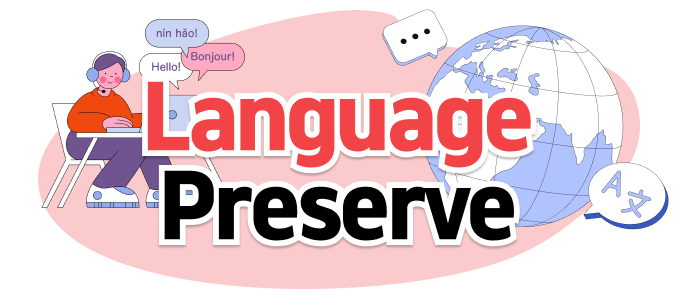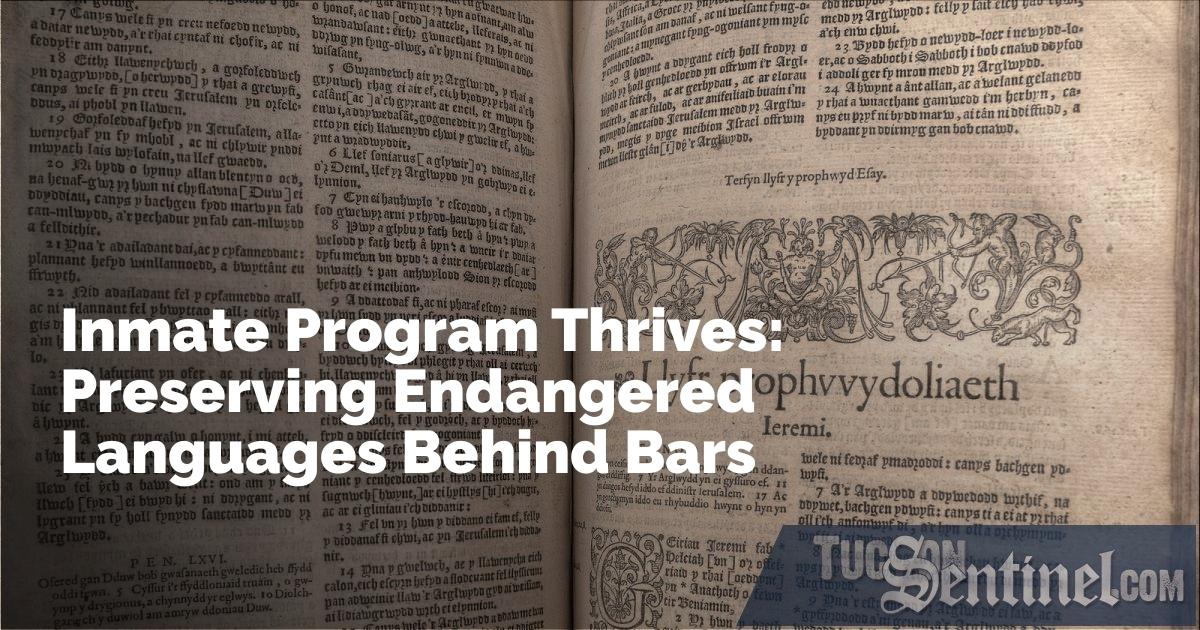Rediscovering Heritage: Language Preservation Behind Bars
Inside the confines of the Arizona State Prison system, an extraordinary initiative is underway, led by inmates determined to revitalize endangered languages. Thomas Steres, a man who has spent nearly a decade of his life incarcerated, is at the forefront of this endeavor. Before his incarceration, Steres served in the U.S. Navy as a trained Russian linguist. During his sentence, he found a new calling in reconnecting with his Welsh heritage. This personal journey of rediscovery not only sparked a passion for the Welsh language but set the stage for a broader movement within the prison walls.
The Awakening of a Linguistic Passion
Steres' fascination with his Welsh roots began approximately five years into his 15-year sentence. His exploration of Welsh culture naturally led him to the language, which, although viable, remains vulnerable. In Wales, only a small fraction of the population speaks Welsh fluently, though efforts are in place to teach it in primary schools. This cultural landscape resonated with Steres, inspiring him to self-educate in Welsh using books.
Today, Steres estimates his proficiency in Welsh at about 60 percent. He eloquently expresses the importance of their native tongue with a Welsh proverb: "a nation without a language is a nation without a heart." This belief has driven him to not only learn the language but also become actively involved in its preservation. Working with Red Dragon America, Steres contributes to the cultural dialogue surrounding Welsh heritage, heralded by the organization as “a proud example of Welsh pride" and “the value in second chances.”
Building a Legacy: The Language Initiative
Steres' passion for preserving his heritage was a precursor to a larger vision—the Linguistic Legacies Initiative at ASPC-Lewis. This program, which began nearly two years ago, involves a group of nine incarcerated men engaging with endangered and vulnerable languages. Their linguistic repertoire includes Welsh, Brittonic, Assyrian, Old Norse, Taíno, Nahuatl, Guosa, and Interslavic. Such diversity enriches the learning experience and promotes an appreciation of various cultures.
The initiative thrives despite the lack of traditional instruction. Without teachers, the participants rely on their own perseverance and resources, such as books and worksheets, provided by external supporters. Throughout his day, Steres dedicates extensive hours to studying, highlighting the group's commitment, as he shares, "We pretty much devote our entire days to this…we dive into languages every day."
A Journey of Self-Discovery: Personal Testimonies
For some participants, like Joshua Huffman, learning a language is a deeply personal journey. Huffman, who delves into Taíno, a language of Indigenous Caribbean peoples, views the program as a means to reconnect with his roots and redefine his identity. Growing up in Puerto Rico without experiencing his cultural heritage firsthand, learning Taíno offers Huffman a newfound sense of self and productivity.
The initiative provides more than just linguistic knowledge; it offers a platform for personal growth and transformation. Participants discover a sense of fulfillment and purpose—qualities often denied in the harsh reality of prison life. As Huffman attests, "I’ve messed up most of my life, and now I’m doing something productive for once, and it actually feels good."
The Power of Education in Transformation
The broader impact of the program extends beyond language acquisition. Academic pursuits in prison are frequently correlated with rehabilitation and reduced recidivism. Susan Dewey, a professor of criminology and criminal justice, affirms, "People who pursue higher education in prison, first and foremost, they're people who want to change." Encouraging positive engagement, particularly through language, holds significant transformative potential for inmates who will eventually reintegrate into society.
Languages serve as more than mere tools for communication; they open gateways to cultural understanding. In an inherently segregated environment like prison, where racial divisions are often stark, the Linguistic Legacies Initiative fosters unity. Steres notes, "Prison is this highly racialized setting…and this kind of breaks that down, because we're a group composed of all components of every race."
A Vision for Change
Although state prison officials have not publicly responded to the language initiative, its potential for rehabilitative impact is evident. The initiative is an example of grassroots-driven change, reliant on outside support to sustain its momentum. Family members of the inmates have even started a GoFundMe campaign to raise funds for educational materials, highlighting the communal investment in the program's success.
Participants like Omar Akram have observed profound personal changes since joining the program. Akram, who studies Guosa—a West African language developed in 1965—remarks on the positive shift among his peers. "The guys I’m with, I’m noticing these guys are becoming scholars…it’s just bringing so many people, different ethnic groups and backgrounds together."
Breaking Down Barriers Through Language
The language initiative doesn't just educate—it liberates. It allows inmates to transcend the negativity that often permeates prison life. Akram's reflection captures the profound emotional impact: "I've never been so excited in my life…this program, it just brings me at ease."
In an environment mired in conflict, the Linguistic Legacies Initiative offers a refuge—a place where anger and animosity can be transformed into understanding and kinship. As the initiative continues, it stands as a testament to the power of language and education as rehabilitative tools, fostering both individual growth and collective harmony within the prison community.
출처 : Original Source

